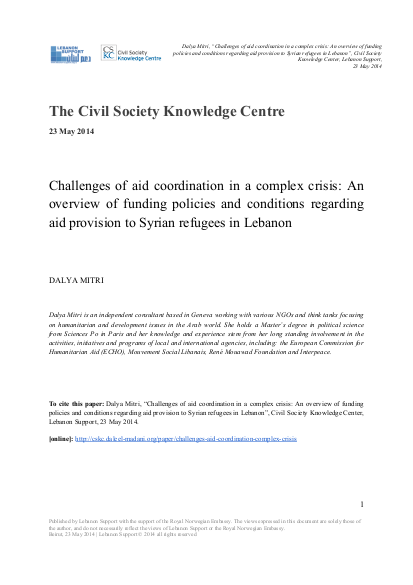
With a refugee population that accounts for more than a quarter of its population, Lebanon faces an unprecedented humanitarian crisis and it is the most affected host country in the region. The unexpected numbers of the crisis community has raised numerous challenges for aid donorship. The aim of this paper is to take stock of and critically assess the state of aid provision for Syrian refugees. In order to do so, it will begin by identifying the numerous actors, donors, and their funding mechanisms and implementation strategies, which constitute the very heterogeneous Lebanese aid landscape. It appears that the traditional – mainly Western – humanitarian actors are now being challenged by so-called non-traditional donors – mostly from the Gulf States. This major switch in humanitarian aid has an important impact on most of the identified challenges, which will be analysed in the second section; challenges that range from coordination shortcomings to Lebanese terrain specificities. The paper will conclude by emphasising the dangers of ultra politicisation of aid provision and its ultimate, negative impact on coordination efforts.